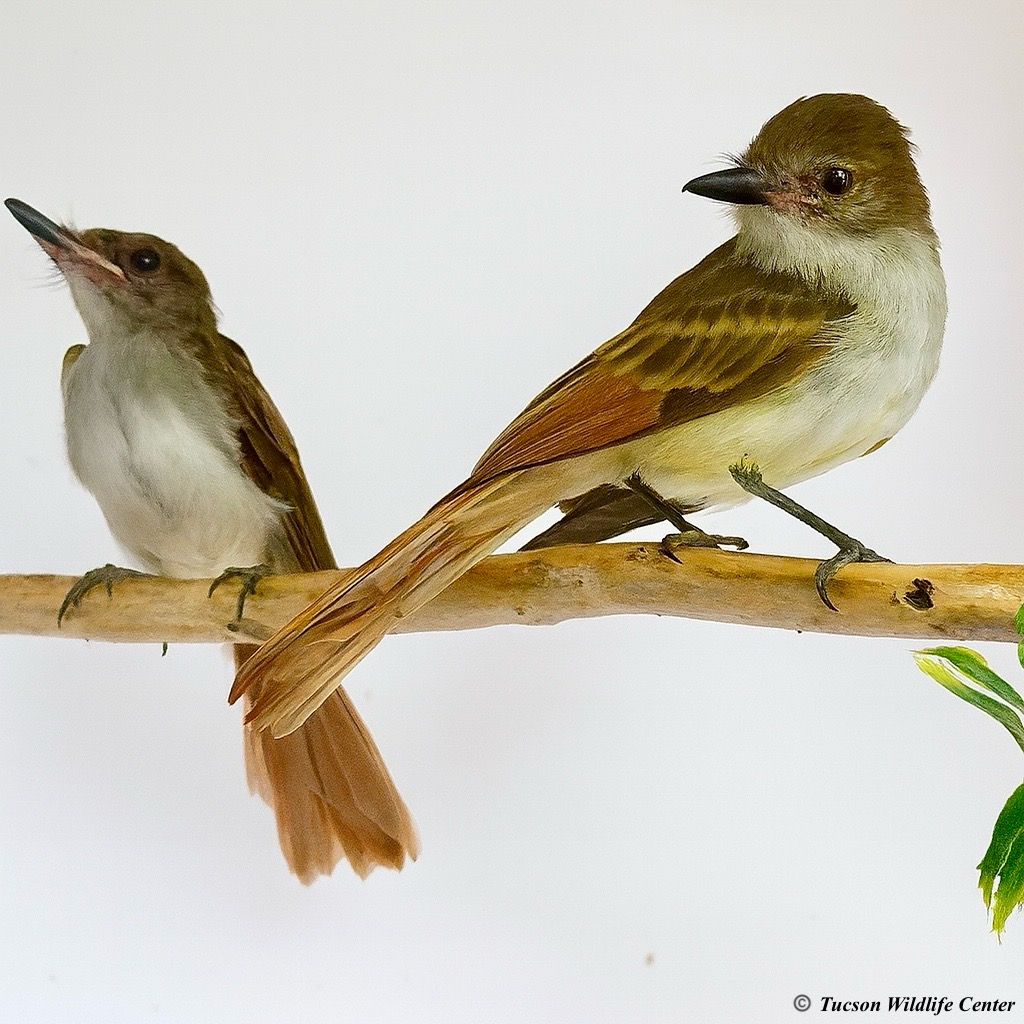
Recently, Tucson Wildlife Center admitted two orphaned flycatchers — one nestling (left) and one fledgling (right)—each found alone on the ground in separate locations. While neither bird was injured, both were dehydrated. The younger nestling required time in an incubator to stabilize its body temperature before it could safely join the older bird.
Once introduced, something remarkable happened: the fledgling almost immediately began acting as a foster parent, offering mealworms to the younger bird (see video). This arrangement benefits both birds—the nestling receives care and social interaction from a member of its own species, while the fledgling gains valuable social experience. Most importantly, being raised together helps both birds recognize and identify with their species, an essential step in ensuring they remain wild and are prepared for release.
When they are old enough and strong enough to survive on their own, both flycatchers will be released at the same time. While they will start their new lives together, wild flycatchers are solitary once independent and do not stay in pairs. After release, each will go on to establish its own territory and follow the seasonal movements typical of its species, but the skills they have learned together will help them thrive in the wild. If you would like to help patients like these flycatchers, click this link to donate,
Another way you can contribute is to visit our “wish list” on Amazon or Chewy below:
We appreciate it, as will all the wild animals in our care!

Show your support with a minimum $25 donation and we’ll send you a “KEEP TUCSON WILD” sticker. Click the bumper sticker to donate.

